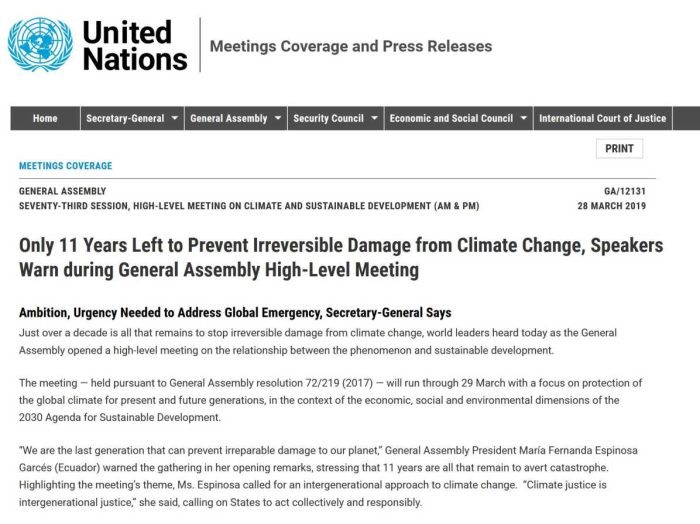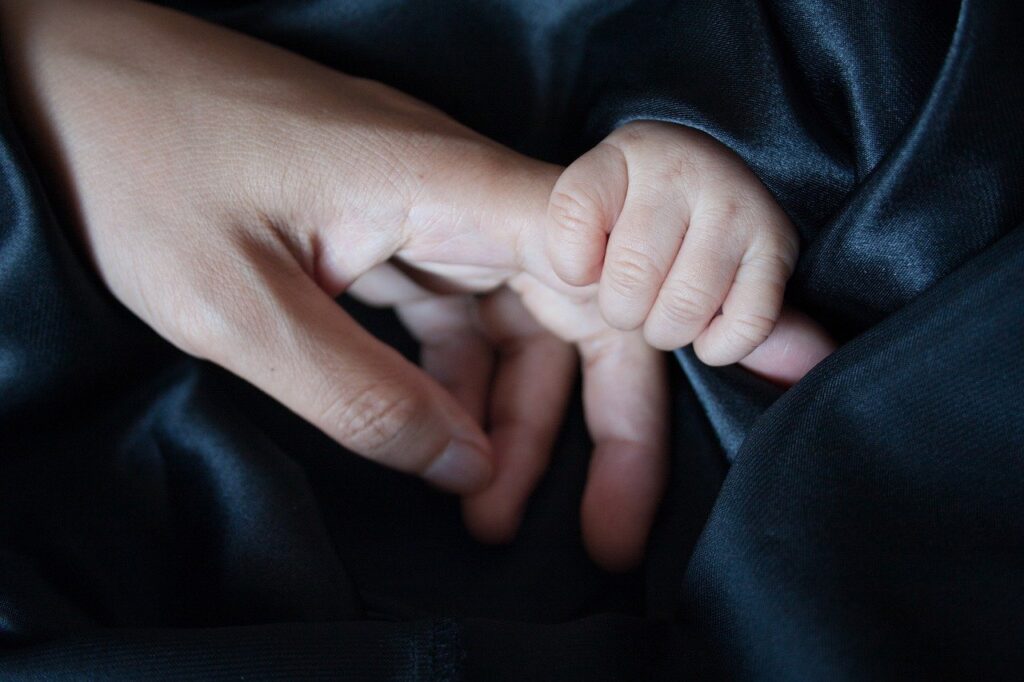
Image Credit: Pixabay Images
Baby Doomers
Baby Doomers are people who are giving up on having children because of global problems such as overpopulation, climate change, and pollution.
With Climate Change taking centre stage in almost all space and conversation, is there a possibility of going overboard with it?
Climate Change on Media
Not a day goes by without News Broadcasters, Politicians, Climate scientists etc. mentioning the catastrophic Climate Change consequences.
It seems like any and every catastrophe is blamed on Climate Change. The messaging is often accompanied with visuals of large forest fires, sweeping floods, droughts…etc.
An article on UN website, dated 28 March 2019, reads “Only 11 Years Left to Prevent Irreversible Damage from Climate Change, Speakers Warn during General Assembly High-Level Meeting“
The year is 2022 now. As the clock ticks away, does that leave us with only 9 years remaining?
Alexandria Ocasio-Cortez, a well-known US politicians made a bold claim that the world will end in 12 years and even referring it akin to World War II. This was in an event on 21 January 2019.
Does such Doomsday-like projection of the world have any effect on listeners, consciously or unconsciously?
How is the Younger Generation Taking the Messaging?
A recent publication by Hickman et al. (2021) at Lancet Planet Health Journal titled “Climate anxiety in children and young people and their beliefs about government responses to climate change: a global survey” sheds some interesting insights.
The study was based on 10,000 young people (aged 16–25 years) in ten countries (Australia, Brazil, Finland, France, India, Nigeria, Philippines, Portugal, the UK, and the USA; 1000 participants per country).
The findings from the study are:
- 75% of the young people are frightened of the future because of Climate Change
- 59% were very or extremely worried
- More than 45% of respondents said their feelings about climate change negatively affected their daily life and functioning
- Almost 40% of young people fear having children in the future due to risks of climate change
Source: Hickman et al. (2021)
One statistic that caught my attention is the young people “Hesitant to have Children“.
Is this also reflective of youths in Singapore?
An article from Today Online, surveyed Singapore’s youth, of which 22% respondents cited Climate Change as concerns about having children.
A similar article on Honeycombers had one participant share thoughts alike:
I’m also quite passionate about environmental conservation. One of the main reasons why our planet earth is going through severe environmental degradation, climate change and global warming is because there are too many humans. The human population has overpowered the planet’s resources and has outgrown what our planet can sustain. I don’t want to add on to this devastation by bringing more humans into this world, even if it’s just one child.
– Kalpana Sivan, 28
Does having children contribute towards Climate Change?
A publication in the peer-reviewed journal of Environmental Research Letter in 2017 titled “The climate mitigation gap: education and government recommendations miss the most effective individual actions” made conclusions to that effect.
The authors (Wynes and Nicholas, 2017) made the following recommendations in reducing individual greenhouse gas emissions (in order by importance):
- Having one fewer child
- Living car-free
- Avoiding airplane travel
- Eating a plant-based diet
Is this the messaging that the youths are hearing?
What does the World Population Say?
A look at the World Population in terms of Yearly Change (%) shows a peak in the late 60’s and a gradual downslope since the late 80’s to present.
The plot suggests that the growth of population on a yearly basis is declining.
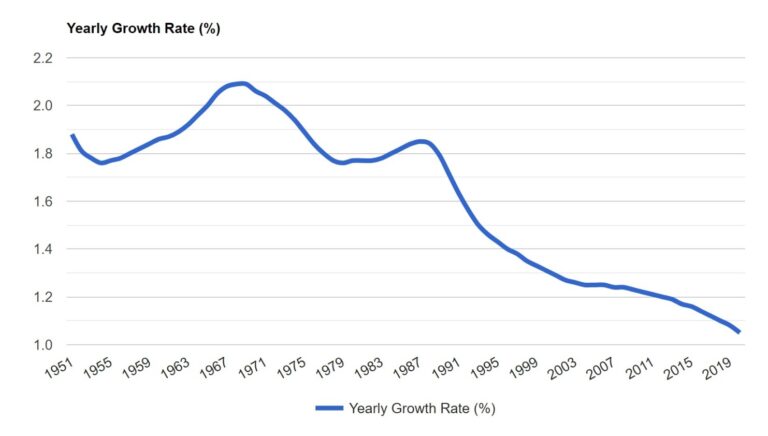
Source: https://www.worldometers.info/
A Closer Look At Singapore Population
The population of Singapore has been increasing at a steady pace from the 50’s. But the trajectory in the last five years is steadily attaining a plateau, with a prominent dip in 2021.
Though this dip in 2021 could be largely attributed to the global Covid19 pandemic.
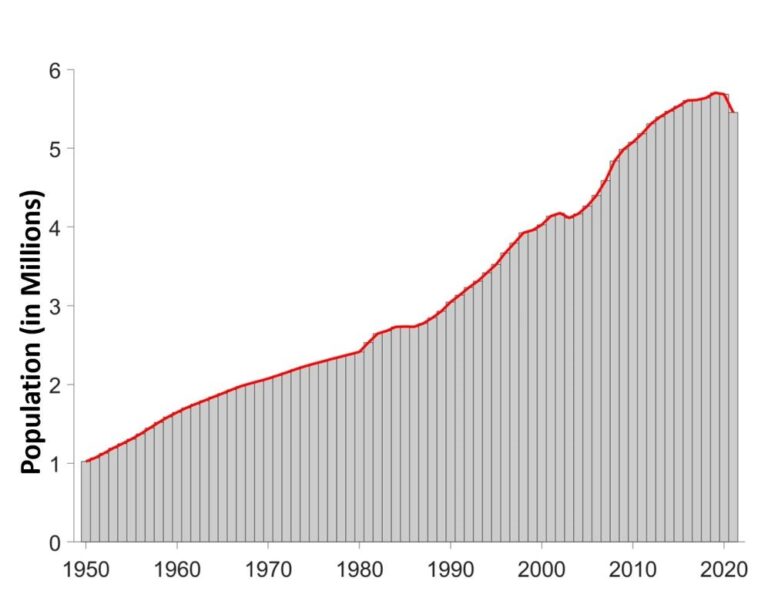
Source: www.singstat.gov.sg
The dip resulted in Singapore’s total population falling by 4.1%. as reported in The Straits Times. Following that was another article titled “Population decline raises issues around Singapore society, identity“.
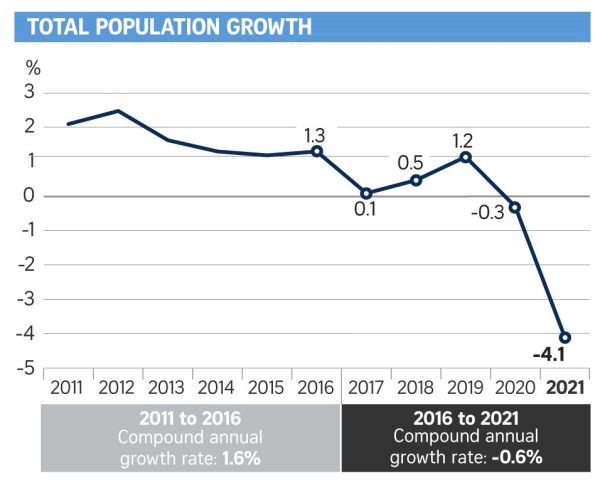
Source: Straits Times
With women and couples choosing to be childfree in Singapore for various reasons, adding Climate Change to it does not help.
This global decline in population is a growing concern and addressed in articles of BBC (Fertility rate: ‘Jaw-dropping’ global crash in children being born) and World Economic Forum (Bye, bye, baby? Birthrates are declining globally – here’s why it matters“).
A baby bust is already sweeping Europe, North America and China, causing problems of its own. The Chinese Communist party, having abandoned its notorious one-child policy, is now encouraging women to have up to three children.
-Madeleine Kearns, The Spectator
My Final Rant worth Two Cents
Is there a growing trend in Baby Doomers in Singapore, like elsewhere, as studies suggest? What would be the outcome of it in the long run, when the population growth is on the decline?
The issue of Climate Change will continue to occupy the conversation space as it is an important issue. BUT HOW IS THE MESSAGING COMMUNICATED?
Sometimes I pause to wonder whether it could be better articulated so as not to result in hysteric response from the younger generation.
Or is this one of the way out of Climate Change?

